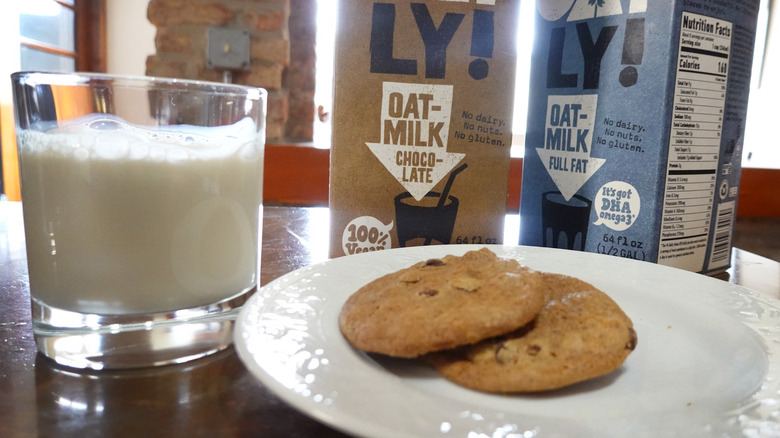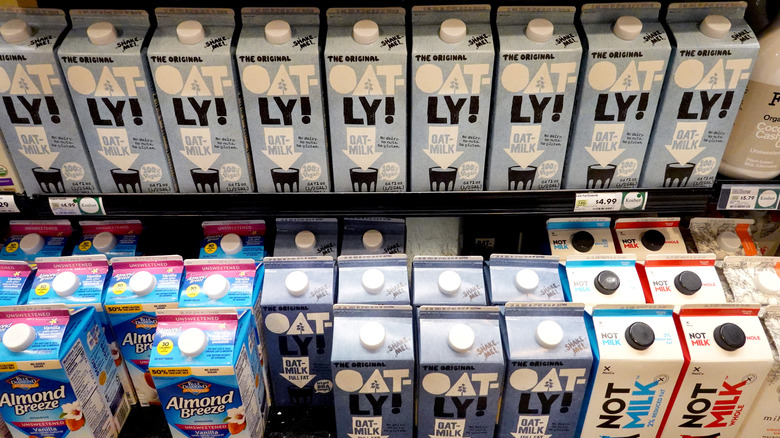The Real Reason Oatly Stock Has Fluctuated Wildly This Year
Oatly who? Just kidding (obviously). Oat milk is the unofficial quarterback of non-dairy milks, and Oatly is the first pick of the draft. While many plant-based alternatives are having a tough time catching on with consumers, Oatly dominates the market without an official social media presence, says Digital Marketer. But, despite its fame, the company has seen some major rises and falls in stock price since hitting American grocery stores.
Oatly was founded in Sweden in 1994, per CNBC, and was developed as an alternative for lactose intolerant consumers. Three decades later, when Toni Petersson became CEO in 2014, the company started plans to expand into the American market.
When Oatly first went public in the U.S. in May 2021, stock prices started at $17, via Food Business News. By July, shares had risen to an all-time high of over $28, but since then prices have seen steady decline. Now, as of May 26, 2022, they've fallen to $4 per share. Oatly's total company valuation fell from $13 billion in summer 2021 to $2.3 billion in summer 2022.
But, Oatly isn't seeing a decrease in sales — not by a long shot. Despite the financial challenges of the COVID-19 pandemic and the fiscal overhead of expansion costs, Oatly's fourth-quarter 2021 financial report demonstrated record yearly sales of $643.2 million, a 52.6% year-over-year increase. Via the report, this makes Oatly the largest purveyor of oat milk in the world.
So, what's to blame for the company's wildly fluctuating stock prices?
Oatly has plans to increase production
According to Oatly CEO Toni Petersson, the company hasn't been able to produce enough product to keep up with consumer demand. On May 25, at the Cowen Future of the Consumer: Sustainable Growth for a New Ecosystem Conference, Petersson reported that oat milk production problems have consistently accounted for empty grocery store shelves nationwide, via Food Business News. Oatly even lost its exclusive partnership deal with Starbucks due to supply issues. In a comment in Oatly's 2021 fiscal report, Petersson said, "We continue to focus on prioritizing growth investments over profitability to increasingly scale our operations to best position Oatly to serve customers and consumers, with the understanding that this creates some near-term margin headwinds."
Although high consumer demand is a terrific problem to have, it still poses a serious hurdle for the company. To increase production, Oatly plans to build six additional plants, raising its total global oat milk yield from 300 million liters to 1.3 billion liters, via Food Business News. With these changes in place, Oatly ("OTLY" on the Nasdaq) is anticipated to supply 85 to 90% of Starbucks oat milk in 2022, reports Reuters. Per the news outlet, Oatly is projected to see a 58% revenue increase during the 2022 fiscal year, compared to Beyond Meat's 27% estimated growth. Don't call it a comeback — it looks like Oatly will make a swift recovery and remain on top of the plant-based world.

